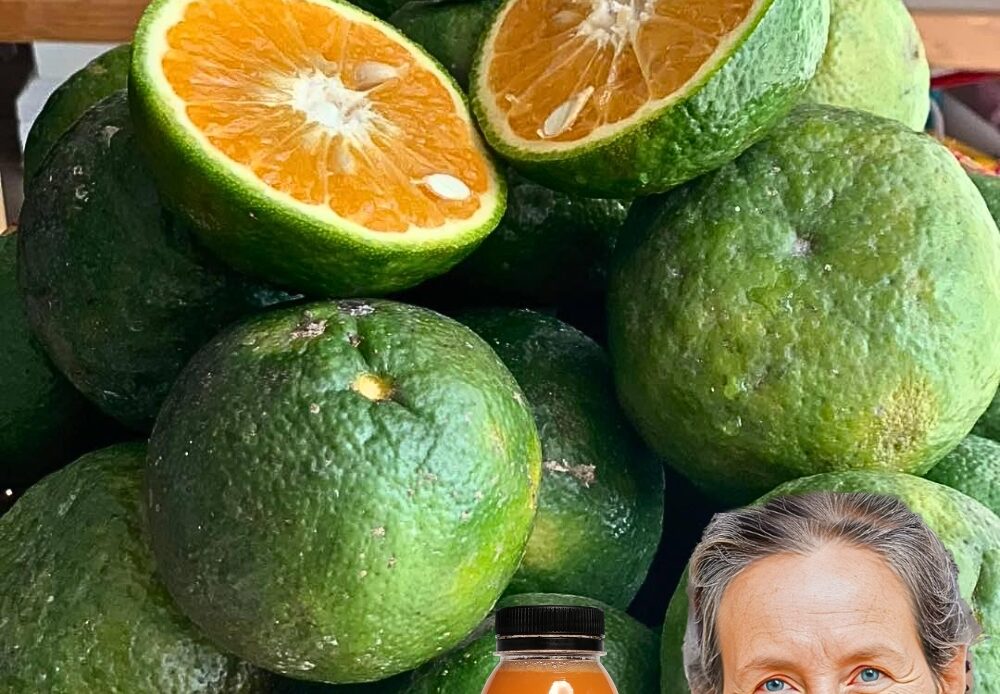Orange juice has long been hailed as the ultimate breakfast companion—a sweet, tangy drink rich in vitamin C that promises a healthy start to the day. But is it really as beneficial as we think? While orange juice does contain nutrients that can support your immune system and overall wellness, there’s more to this citrus beverage than meets the eye. From hidden sugars to potential drug interactions, drinking orange juice without knowing the full story may do more harm than good.
Before you reach for your next glass, here are 9 essential facts you need to know. These health warnings might just change how you see this popular drink—and how you choose to consume it.
1. It’s Packed With Hidden Sugars
Even if your orange juice says “100% juice,” that doesn’t mean it’s free from sugar overload. One cup of orange juice contains about 21 grams of natural sugar—that’s nearly the same as a can of soda. The key difference is that the sugars in juice are released rapidly into the bloodstream because the fiber found in whole oranges is stripped away during processing. This can cause a quick spike in blood sugar, followed by a crash, especially for those with insulin sensitivity or diabetes.
Tip: If you love the taste, try diluting your orange juice with water or opt for freshly squeezed juice in small amounts. Better yet, eat the whole orange.
2. It May Contribute to Weight Gain
Because orange juice is calorie-dense and easy to overconsume, it’s a sneaky contributor to weight gain. Many people assume that because it’s fruit-based, it can be consumed freely—but unlike eating an orange, drinking juice doesn’t activate the satiety signals in the brain that tell you you’re full. This means it’s all too easy to drink several servings at once, unknowingly increasing your daily caloric intake.
Warning: Drinking juice daily without adjusting for those calories elsewhere in your diet can lead to gradual weight gain over time.
3. Most Store-Bought Juices Are Heavily Processed
Many commercial orange juices undergo a process known as “deaeration,” which removes oxygen to extend shelf life. During this process, natural flavors can degrade, so manufacturers often add “flavor packs”—chemically engineered to resemble the taste of fresh orange juice. These flavor packs are not listed on the ingredient label, yet they can significantly alter the natural profile of the juice.
What this means: That store-bought orange juice may taste “fresh,” but in reality, it may be chemically flavored and nutritionally compromised.
4. It Can Harm Your Tooth Enamel
Orange juice is highly acidic, with a pH ranging from 3.3 to 4.2. Over time, this acidity can erode tooth enamel, leading to increased sensitivity, cavities, and irreversible damage. Dentists warn against brushing your teeth right after drinking orange juice because the enamel becomes temporarily softened from the acid, making it more vulnerable to abrasion.
Smart move: Rinse your mouth with water after drinking juice and wait at least 30 minutes before brushing your teeth.
5. It Might Interact With Medications
You’ve likely heard about grapefruit juice interacting with medications, but orange juice—especially bitter or Seville oranges—can also interfere with certain drugs. Calcium-channel blockers, statins, beta-blockers, and some chemotherapy drugs may be affected. Orange juice can alter how these medications are absorbed, potentially reducing effectiveness or increasing side effects.
Caution: Always read medication labels and consult with your healthcare provider if you drink citrus juice regularly.
6. Not All Vitamins Are Created Equal
Yes, orange juice is famous for its vitamin C, but many store-bought brands actually add synthetic vitamin C (ascorbic acid) to boost nutritional claims. While this isn’t inherently harmful, it’s not the same as getting nutrients from whole food sources. Also, vitamin C is heat-sensitive and may degrade during pasteurization, reducing the overall benefit.
Better option: Opt for whole fruits like oranges, kiwis, or strawberries for more bioavailable, intact vitamins and fiber.
7. It Can Trigger Digestive Issues in Some People
Orange juice contains fructose, a natural sugar that can be difficult for some individuals to digest—particularly those with irritable bowel syndrome (IBS) or fructose malabsorption. Consuming even small amounts can lead to bloating, gas, cramps, and diarrhea.
If you notice symptoms: Consider switching to low-FODMAP fruits or avoid juice entirely in favor of whole foods your body tolerates better.
8. Some “Healthy” Juices Are Just Rebranded Sugar Bombs
You might assume that juices labeled as “organic,” “fresh,” or “not from concentrate” are healthier. While these terms may indicate slightly less processing, they don’t eliminate the fundamental issue: juice is still a concentrated source of sugar. Even if it comes from an organic orange, your body still metabolizes the sugars the same way.
Don’t be fooled by labels. Always check nutrition facts—aim for juices with no added sugars and keep serving sizes small (4–6 oz).
9. You’re Missing Out on Fiber—And That’s a Big Deal
One of the biggest downsides of orange juice is what it lacks: fiber. Whole oranges contain around 3 grams of fiber, which slows digestion, reduces sugar spikes, and improves gut health. Juice, on the other hand, is stripped of this essential nutrient, making it less filling and more likely to cause blood sugar instability.
The takeaway: Eating the fruit offers far more health benefits than drinking the juice. You get all the flavor—with none of the drawbacks.
Final Thoughts: Rethink Your Morning Routine
While orange juice isn’t inherently evil, it’s not the health hero it’s often made out to be. Many of us drink it out of habit, without realizing the potential risks associated with overconsumption. If you’re drinking orange juice every day without knowing these nine facts, you could be undermining your health goals—especially if you’re managing weight, blood sugar, or chronic conditions.
For a better alternative, consider starting your day with water, herbal tea, or a smoothie made from whole fruits and vegetables. These options offer hydration, nutrients, and fiber—without the drawbacks of high sugar content and acidity.
